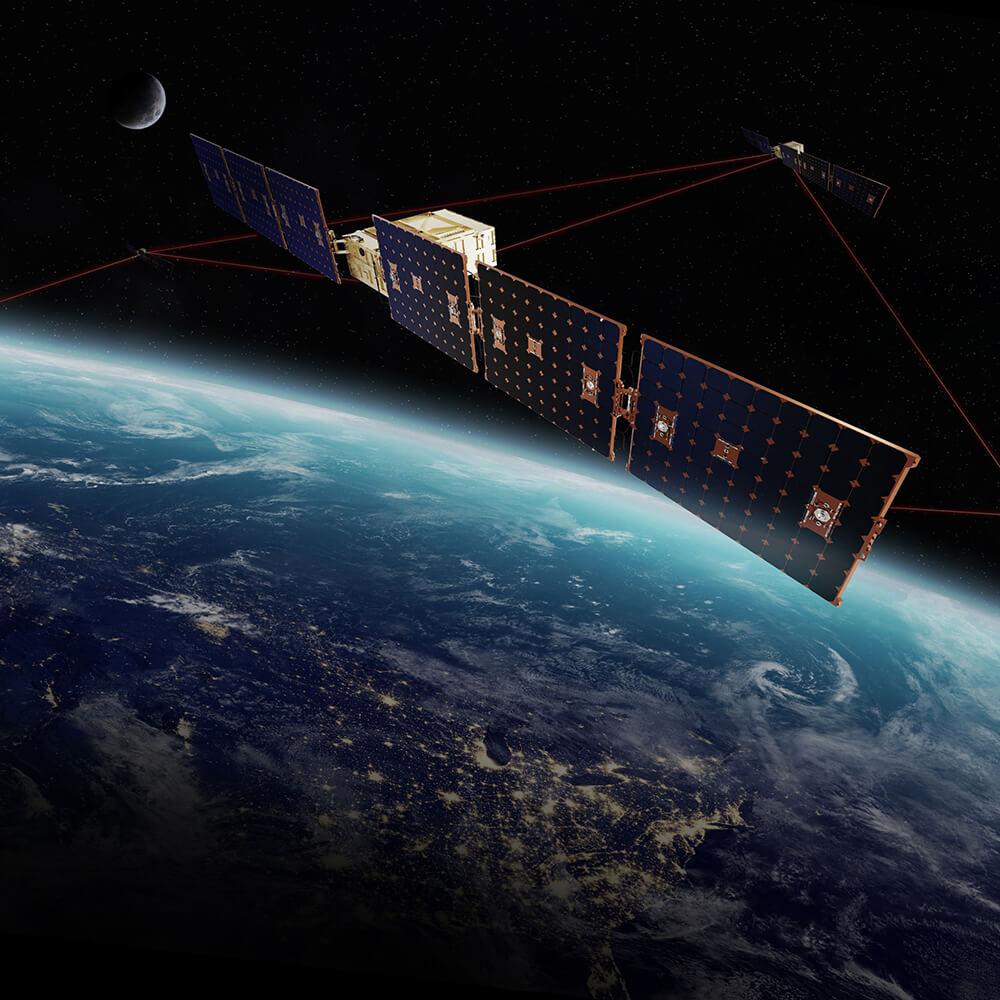
Terran Orbital has won a $2.4 billion contract to build 300 small satellites for Rivada Space Networks, a Munich-based company developing a laser-linked communications network in low Earth orbit.
The announcement is a major win for Terran Orbital and sent the company’s stock surging, up about 85% from the day earlier to around $3.14 a share.
Tyvak Nano-Satellite Systems, a subsidiary of Terran Orbital, will design, build and deploy the 300 small satellites, including 12 spares. Each satellite will weigh about 1,100 lb. and would be placed in near-polar low Earth orbits. Tyvak will also develop portions of the ground segment for the satellite network.
Rivada Space plans to start deploying its constellation as soon as 2025, depending on regulatory approval. It aims for “global coverage” by 2026.
By mid-2028, the German company wants to have full deployment of 600 satellites. The larger constellation would operate in 24 orbital planes and use laser communications to create a mesh network of 2,400 intersatellite links. A vendor for the other 300 satellites has not been selected.
Rivada Space’s network would provide data rates of at least 10 gbps per satellite and latency of less than 150 milliseconds, the company says. The system is designed to serve as a secure, private space-based network for government and business customers including militaries, diplomatic services, banks, telecommunication backhaul users and cloud computing services, as well as industries that operate in remote regions such as the aviation, maritime, oil and gas, and mining sectors.
For example, a bank that would want to connect two of its data centers on different continents with a low probability of intercept or disruption could put a satellite terminal at both locations and use the Rivada Space constellation to transmit its data, a company spokesman says. The bank would avoid sending its data on public terrestrial networks by using the satellite network.
Building 300 satellites for Rivada Space will significantly boost revenue at Terran Orbital.
“The contract represents a massive opportunity at 10 times the current market capitalization and more than 10 times the current backlog of $198 million” of Terran Orbital, Jeffries wrote in a research note.
The deal with Rivada Space comes after Lockheed Martin announced in October a $100 million investment in Terran Orbital as part of a three-year strategic cooperation agreement. That deal included a 60,000-ft.2 expansion of the satellite builder’s manufacturing floor space in Irvine, California–capacity that was in addition to the development of a 660,000-ft.2 facility already underway in Boca Raton, Florida.
Lockheed Martin had subcontracted Terran Orbital to build 10 satellite buses for the Space Development Agency’s (SDA) Tranche 0 Transport Layer, a demonstrator mesh network of laser-linked satellites in low Earth orbit for the U.S. Space Force. Terran Orbital delivered those satellites to Lockheed Martin in December.
“It is very likely that Terran’s successful delivery of the 10 SDA Transport Layer Tranche 0 satellites on time in 2022 played a major role in the company’s selection by Rivada,” Canaccord Genuity wrote in a research note. “Despite major supply chain issues experienced by other competitors on the SDA’s Transport Layer program and likely underbidding on the contract that resulted in satellite rework, [such as faulty power supply units] and delays, Terran managed to get its portion of SDA satellites delivered on schedule without issue.”
Terran Orbital is also working on manufacturing 42 satellites for the SDA Tranche 1 Transport Layer, scheduled to launch in September 2024.
